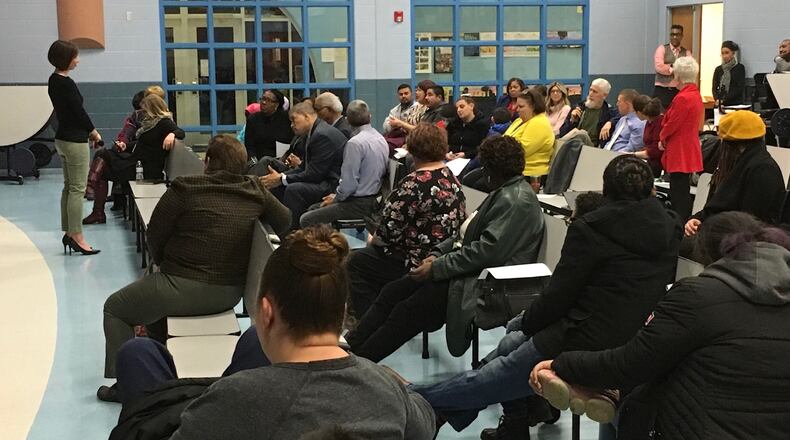RELATED: New school law affects graduation, funding, religion
In each case, 12% said educational quality was excellent, 54-55% said it was good, 22-24% said fair, and 7-9% said poor.
Asked if the district had been moving in the right or wrong direction prior to the closures, 59% said the right direction, and 9% said wrong, according to results from LJR Custom Strategies and Burges & Burges Strategies.
District officials said the results matched a state report card rise from an “F” to a “D” last year, as well as efforts to improve student attendance. The survey phone calls began April 30, according to DPS officials, with calls made randomly using a list of all students.
Asked how they were adjusting to online learning, 31% said their families were “adjusting well,” 49% said they were “getting by,” and 14% said they were struggling.
Bill Burges, chairman of Burges & Burges, said the survey results show that good work is being accomplished in the district. He added that there’s still more to do, because if 14% are struggling, that equates to more than 1,000 students.
SCHOOLS: State cuts, CARES Act create fiscal winners, losers
Burges called it “troubling” that roughly a quarter of all survey DPS respondents asked for a follow-up call from the school district to address some issue. He said that rate that was four times higher than in a similar district that just did a survey.
School board member Will Smith said the district has to connect with people who for any number of reasons may have had an issue go unresolved.
“I’m pleased to see a lot of the good numbers, but I also … think of the people that we’re either missing, or didn’t get to speak to, or the people who reached out and said, I want a further conversation,” Smith said.
School board President Mohamed Al-Hamdani urged Superintendent Elizabeth Lolli to have her staff make contact with those 100 parents as soon as possible.
Other survey findings
• Parents gave the highest marks to DPS teachers, with 34% of respondents rating them excellent and 47-48% rating them good, both before and after school building closures. About 4-5% rated them as poor.
• Respondents also approved of communication efforts from DPS — 27% excellent, 48% good, 16% fair and 8% poor. Asked what one thing DPS was doing particularly well during the pandemic, communication was the top response, at 31%, followed by “teachers” and “still educating” at 11% each.
EDUCATION: Investor plans new private school near downtown Dayton
• Asked what the single biggest challenge was regarding at-home education, the top response was “motivating kids to study” at 13%. But multiple technology-related answers were on the list, and if combined, would have hit about 20% — need internet (7%), need devices (6%) and software/technology issues (6%).
• Asked whether they had a computer or tablet in their home, 91% of parent respondents said yes, and 31% said their children had to share that device with parents. About 90% said they had paid internet access at home and 85% said that connection was reliable enough for online learning.
DPS provided thousands of laptop computers and WiFi hot spots this spring. Smith said the district should analyze how the parent responses fit with the schools’ response to student need.
• Parents were split on whether they are concerned about their kids falling behind academically given the closures this year. About 48% said they are concerned, and 46% said they’re not.
GRADUATION: Read feature stories on some top Class of 2020 students
• About 17% of parent respondents said their child spent more than four hours per day on online learning during the closures. About 38% said it was 2-4 hours, 33% said 1-2 hours daily, 6% said less than an hour, and 3% said their kids spent zero time with online learning.
According to survey details, 68% of respondents were age 25-44. About 55% were black, 26% were white and 9% hispanic, with some others not specifying.
About the Author

